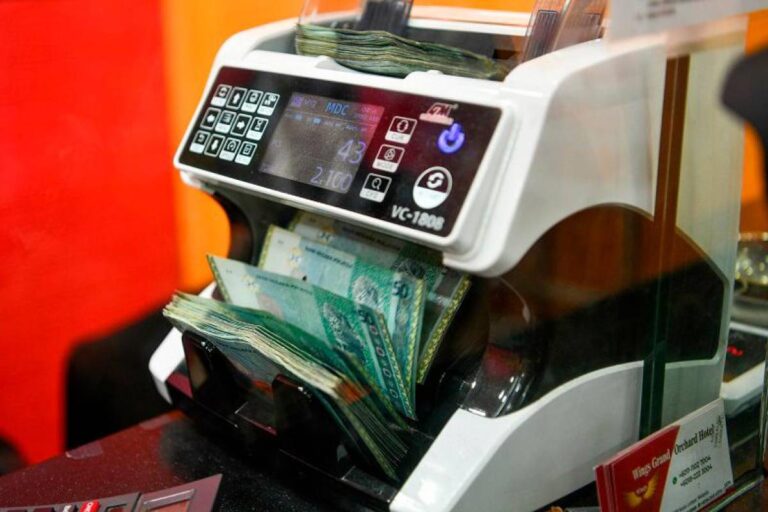
Kuala Lumpur: Knight Frank Malaysia released the Malaysia Commercial Real Estate Investment Sentiment Survey (CREISS) 2025, highlighting key trends and opportunities in the country’s commercial real estate market.
Based on insights gathered from industry leaders and stakeholders, the report provides a comprehensive vision to 2025, highlighting the evolving role of resilience, growth potential and ESG (environmental, social and governance) considerations.
As Malaysia’s commercial property landscape evolves, data centers and industrial/logistics have emerged as the most resilient and promising sectors for 2025.
These sectors are fueled by growing demand for cloud computing, e-commerce growth and Malaysia’s position as a regional business hub.
The survey estimates that these sub-sectors will outperform, with notable contributions from Johor’s growing data center development and the continued expansion of the Klang Valley’s industrial landscape.
A brighter outlook is projected for the retail and hospitality sub-sectors due to rising consumer spending and tourism recovery.
In 2024, Malaysia welcomes 22.5 million tourists by November – a clear indication of growth momentum for 2025. Industry players expect an improvement in rental and occupancy rates in these sectors, underscoring their recovery potential.
Despite the central bank maintaining the OPR at 3.00% throughout 2024, key challenges remain, including rising interest rates, inflationary pressures, financing difficulties and rising construction costs due to geopolitical tensions and supply chain disruptions.
Rising building vacancy rates due to hybrid work trends and supply-demand gap as well as fiscal challenges have made the commercial real estate landscape more stressful.
The retail sector also suffered a decline in sales due to brand boycotts, while risks projected for 2025, such as rising costs, changes in tenant demand and regulatory changes, are expected to increase concerns.
In 2024, 48% of respondents, driven by government policies such as New Industrial Master Plan 2030 (NIMP 2030) and National Energy Transition Roadmap (NETR), are expected to expand their portfolio in the industrial/logistics sector, while 39% will maintain their portfolio.
Rail developments such as MRT and LRT promoted transit-oriented growth with the portfolio expanding by 44%. In the hospitality and office sectors, most maintained portfolios (77% and 57% respectively), although 27% reduced office assets. The retail sector saw mixed activity: 46% retained, 36% expanded, 11% downsized, and 7% exited, with sales projected to grow 3.9% amid economic resilience and a strong labor market.
CREISS 2025 highlights the growing importance of ESG in real estate, with a focus on energy efficiency, green certification and sustainable practices as businesses adapt to regulatory changes and investor demands.
The introduction of carbon tax policies in Budget 2025 emphasizes the need for ESG-aligned investments. About 34% of respondents say their organizations have fully adopted ESG, while 66% have partially integrated it, and have focused on key issues in their decision making and reporting.
“ESG is no longer an option but a necessity for real estate players to remain competitive in a rapidly changing landscape. This sentiment is echoed by 91% of our survey respondents who recognize the important role of ESG in their investment strategies,” said Keith Ooi, group managing director.
Meanwhile, Research and Consulting Executive Director Amy Wong (Picture) said: “The findings of the CREISS Report 2025 highlight a transformational period for Malaysia’s commercial real estate market.
“While challenges remain, the opportunities presented by sectors such as data centres, industrial/logistics and ESG-aligned growth are significant. These insights will undoubtedly serve as a valuable resource for industry stakeholders.
The report shows that Klang Valley and Johor are set to lead commercial real estate investment in 2025.
The Klang Valley remains Malaysia’s central business and economic hub, while Johor, strategically located near Singapore, is attracting interest in data centers and industrial/logistics. The increasing land acquisition for the Johor-Singapore Special Economic Zone (JS-SEZ) and data center projects highlights Johor’s growing appeal.
Despite challenges such as rising construction costs and a tenant-driven market, 91% of respondents remain optimistic about Malaysia’s commercial real estate market in 2025, with 34% planning to increase their investments. Nevertheless, 75% view the FDI outlook as favourable, supported by RM254.7 billion in approved investments during 9M2024, an increase of 10.7% from 2023. Malaysia’s economy shows positive momentum with 5.2% GDP growth and 3.3% unemployment rate during the same period. ,
CREISS 2025 serves as a strategic tool for stakeholders, providing actionable intelligence to address the opportunities and challenges in the coming year. Knight Frank Malaysia will soon release the Real Estate Highlights 2H2024 (REH 2H2024) publication, offering a comprehensive half-year review of the Malaysian property market to complement the forward-looking insights of CREISS 2025.
“Our CREISS 2025 emphasizes our dedication to equipping stakeholders with the insights they need to thrive in a dynamic market. By combining forward-looking trends with actionable intelligence, we aim to empower informed decision-making and drive sustainable growth in Malaysia’s commercial real estate landscape,” said Ooi.





